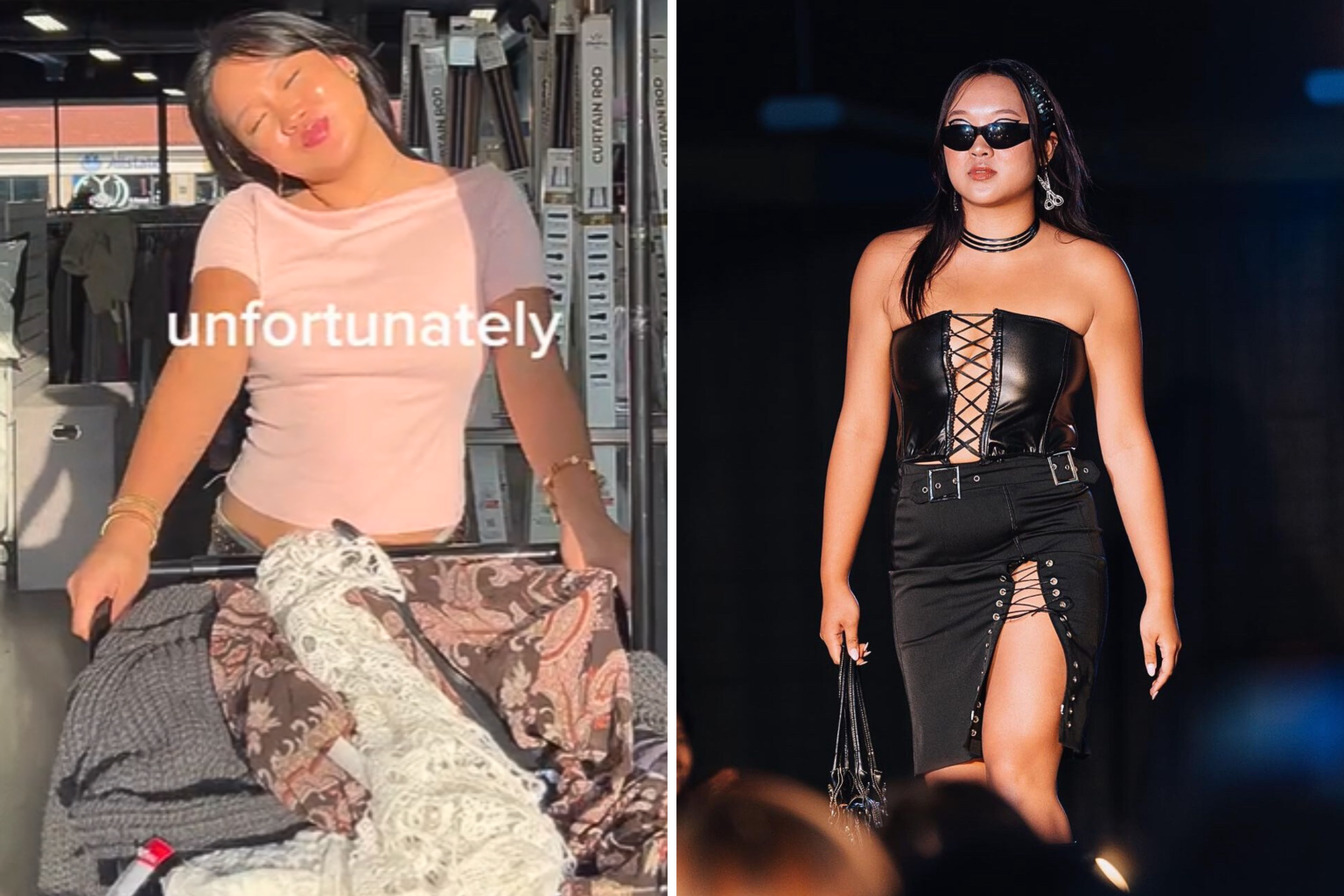The fashion industry is undergoing a shift towards sustainability and affordability, with thrifting at its core. Personal stylists like Kalita Amber Hon are leading the charge, using thrifted items to revolutionize how we shop for clothing. Hon, a 23-year-old personal stylist based in Los Angeles, began her journey on social media, sharing thrifting hauls and styling tips with her growing audience. Her unique approach of incorporating thrifted items in her collections has garnered her a large following and a roster of clients seeking her expertise.
In a viral video, Hon showcases the reality of thrifting by highlighting the trial and error process that comes with it. She emphasizes the importance of being selective and exploring all sections of thrift stores to uncover hidden gems. Hon’s goal is to encourage more people, especially young individuals, to embrace thrifting as a sustainable and budget-friendly way to shop. Thrifting is not only a fun treasure hunt but also a way to reduce waste, conserve resources, and contribute to a happier Earth by choosing secondhand items over new purchases.
The fast fashion industry has long been criticized for its environmental impact, with concerns about carbon emissions, water consumption, and waste generation. Thrifting has emerged as a popular solution to combat these issues, attracting a diverse range of consumers looking for branded clothing at affordable prices. However, the rising popularity of thrifting has also raised ethical questions about the potential exploitation of lower-income individuals and the commodification of thrifted goods for profit. Despite these concerns, Hon remains optimistic about the benefits of thrifting and continues to advocate for its positive impact on the environment.
Carley Lake, co-founder of Lucky Sweater, a clothing swap app, echoes the sentiment that thrifting is a sustainable and rewarding way to shop. By choosing to thrift, individuals can reduce waste, conserve resources, and contribute to a more eco-friendly fashion industry. As thrifting becomes more mainstream, it is crucial for consumers to be mindful of their purchasing habits and support ethical practices in the industry. Thrifting is not just about finding stylish bargains but also about making a conscious choice to support sustainable fashion practices for a better future.


